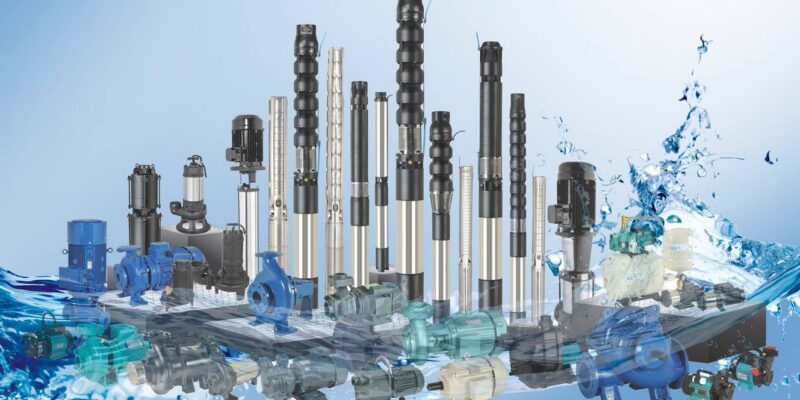
Submersible pumps are essential tools for various applications, ranging from agricultural irrigation and municipal water supply to dewatering construction sites and managing wastewater. Understanding the costs associated with submersible pumps can be complex due to the numerous factors influencing their prices. This article aims to break down submersible pumps price, providing a comprehensive understanding of what you can expect when investing in a submersible pump.
Introduction
Submersible pumps are widely used for their efficiency and effectiveness in moving water from one place to another. These pumps operate underwater, which makes them highly efficient for a variety of tasks, including irrigation, drainage, and sewage handling. However, the cost of submersible pumps can vary significantly based on several factors. This article will explore the different types of submersible pumps, the factors affecting their prices, and provide tips on how to choose the right pump for your needs.
Types of Submersible Pumps
1. Well Pumps
Well pumps are used to extract water from underground wells. They are commonly used in residential, agricultural, and industrial settings. The price of well pumps can range from $200 to $1500, depending on the depth of the well and the pump’s capacity.
2. Sewage Pumps
Sewage pumps are designed to handle wastewater and sewage, making them essential for municipal and industrial wastewater management. These pumps are typically more robust and can handle solid waste. Prices for sewage pumps generally range from $300 to $2000.
3. Utility Pumps
Utility pumps are versatile and can be used for various general purposes, such as draining pools, flooded basements, and removing water from construction sites. These pumps are usually less expensive, with prices ranging from $50 to $500.
4. Grinder Pumps
Grinder pumps are used in sewage systems to grind down solid waste before it enters the sewage system. These pumps are more specialized and can be more expensive, typically ranging from $500 to $3000.
Also read: Jindal Steel Sheet Price: Factors, Trends, and Insights
Factors Affecting Submersible Pump Prices
1. Pump Material
The materials used in the construction of submersible pumps can significantly affect their price. Pumps made from stainless steel or other corrosion-resistant materials are generally more expensive than those made from plastic or other less durable materials. The choice of material affects the pump’s durability and lifespan, making it a crucial factor in the overall cost.
2. Pump Capacity and Power
The capacity and power of a submersible pump, measured in gallons per minute (GPM) and horsepower (HP), respectively, are primary factors influencing its price. Higher capacity and more powerful pumps are typically more expensive due to their ability to handle larger volumes of water and more demanding applications.
3. Brand and Manufacturer
The brand and manufacturer of the pump can also impact the cost. Well-known and reputable brands often charge a premium for their products due to their established reliability, better warranties, and higher quality. While these pumps may be more expensive initially, they often offer better performance and longevity.
4. Features and Technology
Modern submersible pumps come with a variety of features and advanced technologies that can affect their price. Features such as automatic shut-off, thermal protection, and energy-efficient motors can add to the cost but provide added convenience and protection for the pump.
5. Installation Costs
Installation is another significant factor to consider. Professional installation ensures that the pump operates efficiently and safely, but it can add to the overall cost. Depending on the complexity of the installation, costs can range from $100 to $1000 or more.
6. Maintenance and Repairs
Ongoing maintenance and potential repair costs are important to consider when evaluating the overall cost of a submersible pump. While some pumps are designed for minimal maintenance, others may require regular servicing to ensure optimal performance. Understanding the maintenance requirements and associated costs can help you make an informed decision.
Tips for Choosing the Right Submersible Pump
1. Assess Your Needs
Determine the specific requirements of your application. Consider factors such as the type of water you need to pump (clean water, sewage, etc.), the required flow rate, and the total head (the height the water needs to be lifted).
2. Consider the Total Cost of Ownership
Look beyond the initial purchase price and consider the total cost of ownership, including installation, maintenance, and energy costs. A more expensive pump with lower operating costs may be more economical in the long run.
3. Research Brands and Reviews
Research different brands and read customer reviews to gauge the reliability and performance of various pumps. Look for pumps with good warranties and after-sales support.
4. Consult a Professional
If you are unsure about the best pump for your needs, consult a professional. An expert can help you choose the right pump based on your specific requirements and ensure it is installed correctly.
Conclusion
Understanding the costs associated with submersible pumps requires careful consideration of various factors, including the type of pump, materials used, capacity, brand, features, and installation costs. By taking the time to assess your needs and evaluate the total cost of ownership, you can make an informed decision and select a submersible pump that meets your requirements and fits your budget.
Investing in the right submersible pump can provide long-term benefits, including efficient water management, reduced maintenance costs, and reliable performance. Whether you need a pump for residential, agricultural, or industrial use, understanding the factors that influence submersible pump prices will help you make a smart investment.






